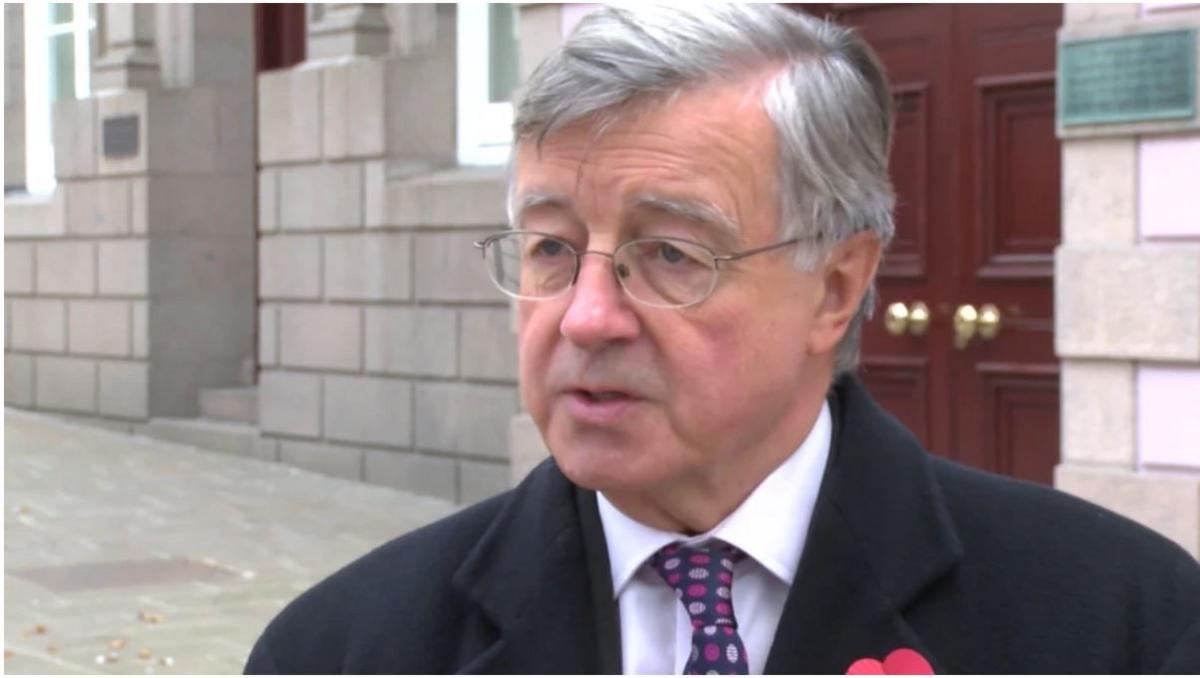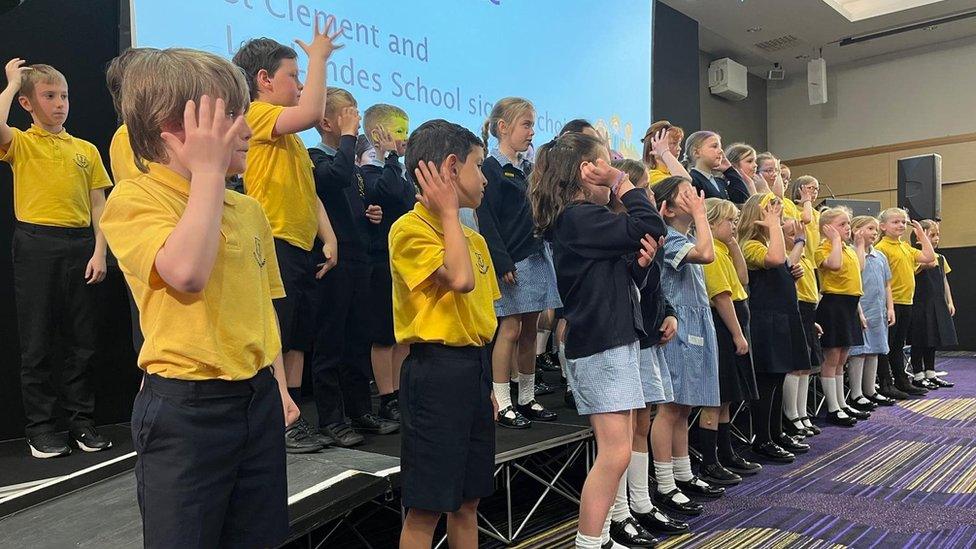States rejects plans for bilingual schools

Deputy Sir Philip Bailhache is a member of the Assemblée Parlementaire de la Francophonie
- Published
Jersey's politicians have voted against the creation of bilingual schools.
The proposition, entered by Deputy Sir Philip Bailhache, asked the education minister to consider converting at least two island primary schools to English-French bilingual learning, with a phased introduction.
He said there would not be an "overwhelming difficulty" in changing three existing schools to bilingual teaching.
Education Minister Deputy Rob Ward strongly opposed the plans, describing it as something that "promises more than it would deliver".
In total 26 members voted against the plans with 15 voting in favour of them.
States Members supported part of the proposition which called for a survey of the parents of pre-school children to establish the desirability of English-French bilingual schools in Jersey.
'Enormous advantages'
Sir Philip said there were "enormous advantages" to having bilingual schools for children, and the whole Island.
He said: "Apart from the ability to speak two languages, children will then have employment opportunities which are greater because they can seek employment in countries in Europe which speak French."
He also noted that bilingual children often have quicker mental processing which can help in other school subjects including maths and music.
'Distraction from the priorities'
Deputy Rob Ward said the plan for bilingual schools "promises more than it would deliver".
He continued: "It would also be a distraction from the priorities that we have in our primary schools that are much wider. Every day primary schools deal with so many challenges."
Mr Ward added he did not believe bilingual schools could be "delivered in an effective way".
A survey of 24 headteachers unanimously rejected the plans.
Mr Ward said the government must listen to education professionals who believe the project is "not right for our schools".
- Published4 September 2024

- Published19 May 2015
- Published27 April 2024
